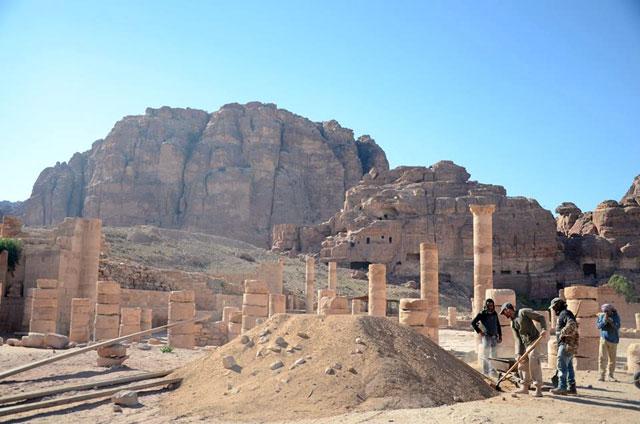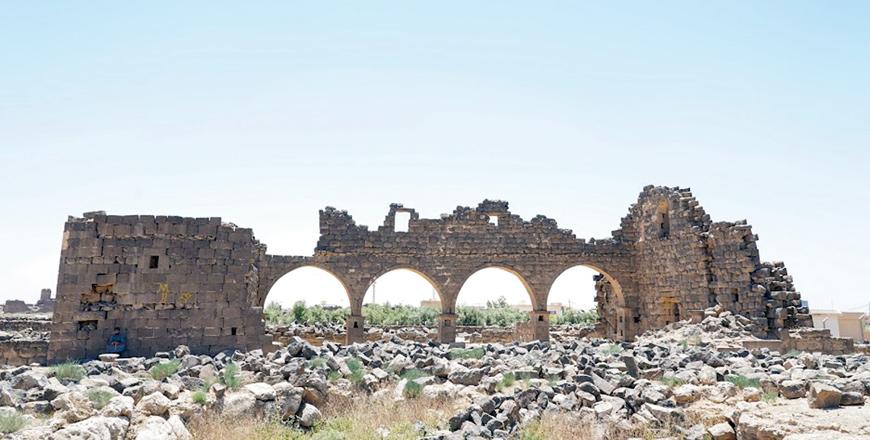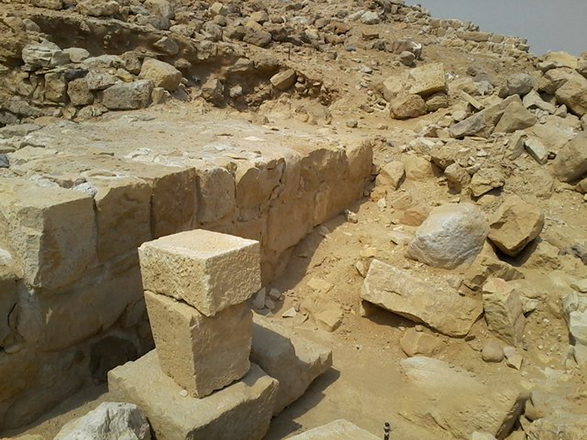You are here
Fiction comes to aid of anthropologist for reaching broad audience
By Saeb Rawashdeh - Aug 18,2019 - Last updated at Aug 18,2019

Anthropologist Allison Mickel was a member of the research team working at Bir Madhkur site, near Petra, and wrote an account of the work in the style of a novel (Photo courtesy of Allison Mickel)
AMMAN — For most people, the predominant archaeological writing style is “too dry and boring”, thus, something has to change in order to make specialised books and articles more appealing to readers.
This is the position of Allison Mickel, an American anthropologist and author of the book “Archaeologists as Authors and the Stories of Sites: Defending the Use of Fiction in Archaeological Writing”.
In the period between 1980 and 1990 “there was an emerging group of archaeologists who were increasingly concerned with the politics of the work that they do”, Mickel told The Jordan Times in a recent interview.
”This group, called post-processualists, recognised that there are many ways to understand the past and the world around us,” said Mickel.
They experimented with creative writing techniques, the scholar said, adding that they believed that the way one talks about the past changes how he understands it.
Furthermore, if one writes in more imaginative ways, one can be more imaginative in interpreting the evidence and reaching conclusions one never would have thought of otherwise, Mickel said.
One of the reasons for dry style of archaeological literature is that archaeologists “tend to publish in very formulaic ways”, she elaborated.
However, their work is extremely social and it is often very important to lots of different people for different reasons, Mickel said.
”So, at least in my view”, the scholar said, “archaeologists have a real responsibility to communicate their research in a way that doesn’t lose the complexity and dynamic nature of archaeological excavation that illustrates the unpredictability, originality and social nature of archaeological fieldwork.”
In her book Mickel argues that scholars should make use of the sorts of writing tropes that fiction writers use in order to make their writing more appealing to diverse audiences. Things like plot, characters, and vivid description would make the writing easier to understand, more exciting to read, more complex, and in many ways more honest.
”It would allow us to retain the full nuance of both what we find as archaeologists and how we find it. As someone who has learned a lot from literature, I believe that literature has a lot to offer other disciplines in terms of how to communicate in rich and compelling ways,” the anthropologist elaborated.
Mickel was a member of the research team which worked at Bir Madhkur site, near Petra.
”I wrote an account of the work at Bir Madhkur in the style of a novel. The characters in the story are mixtures and extreme versions of real people, and the events are ordered so that they make sense as a plot,” she said.
Related Articles
AMMAN — Being in direct touch with the population of Petra, an American anthropologist realised that they are "deeply emotionally connected
AMMAN — Two startups have been working on community capacity building in Wadi Musa and Umm Al Jimal which includes training of residents of
AMMAN — The site of Bir Madhkur is located in the Petra hinterland some 12 km northwest of Petra, near Wadi Araba.



















